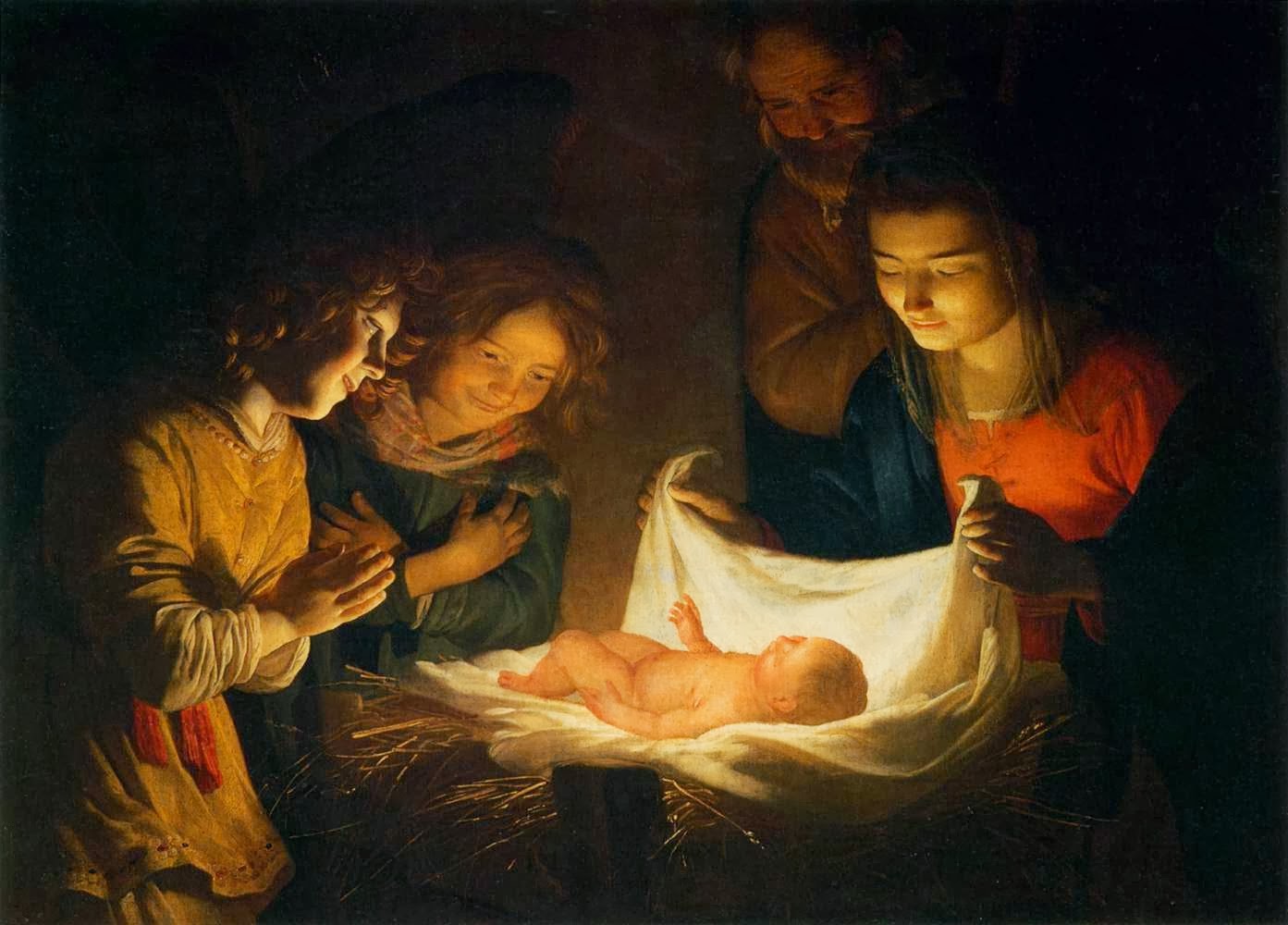The Incarnation & the Eucharist - why Christ's presence must transform our lives!
As I start this post it is right before our retreat starts at St. Meinrad (so the no electronics policy hasn't started yet), and I wanted to write a short post about something I found in The Priest is Not His Own, by Venerable Fulton Sheen. I've been reading the book for a while (I probably started it nearly a year ago), but it is somewhat long, very dense (in a good way), and I have had a pile of books which I am reading simultaneously (which slows down how fast one can read through one book).
Anyway, on pages 200-213 he talks about the Eucharist (a topic that goes throughout the entire book, but this happened to be the place that I started today, so it's what I wanted to make a post on). He begins by looking at the Old Testament, how Melchizedek, and his sacrifice of bread and wine, prefigure Our Lord, and His sacrifice of bread and wine (which, of course, is Himself). This probably is an obvious type (where something in the Old Testament prefigures something in the New), but Bishop Sheen goes further: what does Abraham do when he gains victory (saving Lot)? Instead of taking the spoils for himself, Melchizedek arrives and blessed Abraham, reminding him that the spoils, the victory, are truly God's.
Next, Bishop Sheen looks at the bread of the presence in the Old Testament. This is another obvious type of the Eucharistic bread that Christ will give in the New Testament. I quote:
For irreverence to what was a mere figure of the Blessed Sacrament [the Ark containing the bread of the presence], the Philistines were afflicted with diseases, the Israelites visited with death. If the penalty seems to us sever it is because our minds have fallen short of the reverence due to what symbolizes His Presence, or to the Presence itself. [Fulton Sheen. The Priest Is Not His Own. Page 209]
Finally, he looks at the New Testament. The first words Jesus speaks (in John's Gospel) are "What would you have of me?" [John 1:38] It is a question that we should all ask ourselves. Are we coming to Jesus Christ for worldly power or prestige, money, military power, or some other worldly good? Are we coming to take some part of what Jesus says, but not quite everything? John and Andrew, when they first came to Jesus, got it right. They accepted everything, they didn't say, well, we like the healing the sick part, but not so much the picking up one's own cross. They simply asked Jesus "where are you staying?". As Fulton Sheen explains, we need to do the exact same thing - go to where Jesus is present - accepting everything from Him who gives us everything in the Eucharist.
I am now back from my retreat, which was awesome by the way, and this theme, to be open to Christ coming into my life and transforming it, seems to keep reappearing everywhere. On the drive back from Effingham on Thursday, I listened to a podcast by Fr. Michael Schmitz, which was his homily for Christmas Eve. In that homily he reiterated that Jesus came into the world out of love, He wants to enter your life - your entire life, the good and the bad - and transform it. He was born into a cold cave at Bethlehem, was laid in a slimy, nasty, manger, and visited by the not-so-spiritually-great shepherds. But that is the entire message of Christmas, that God becomes man precisely to enter our broken, messed-up, hard world. He comes as a man so that He can save all men from their sins and bring them to Himself. It is up to us to accept that invitation. To meditate on the beauty, tenderness, and love shown to us in the Incarnation, but also on the same beauty, tenderness, and love that Jesus shows to us everyday in the Holy Mass. We must receive him into our lives just as Mary did. We must have incredible reverence, devotion, and love for this incredible gift of Himself - something the Israelites forgot to their peril. And finally, we must give absolutely everything to God, just like Abraham did. (Side note: Abraham is often called the father of faith, but it's important to remember that faith is more than just believing/agreeing with doctrines, dogmas, etc. Faith means we give our lives to God and let Him change us. It means acting differently! - something I learned today in a talk by Bishop Paprocki to a men's prayer breakfast here in Quincy.) Let Christ entering into your heart, especially in the Eucharist, totally transform your life! There is so much more to say here, but I have run out of time, so I'll have to leave you with that for now...
Alright! Well, that post ended completely differently than I had intended it too, but blogger.com stopped working so I lost the last half and had to retype it (and I went into a totally different topic). Think of it this way, it means I have something else to write about later! Anyway, I am now in the last days of my Christmas break, having been running around non-stop since it started, having still not completed the application to the N.A.C., and having not read all dozen, or so, books that I wanted too. Good thing I'll have tons of free time this semester... (not!) Ah well, business is a sign of abundant blessings I suppose.
.png)











Dominic....we enjoy your blog.
ReplyDeleteThank you! I enjoy writing it too!
Delete